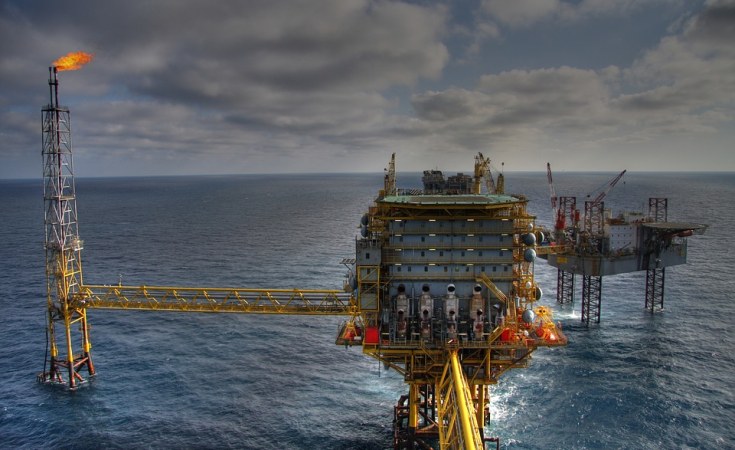Nigeria is the market to watch this year not only because of the opening of the Dangote refinery but because of its upcoming change of administration, an expert said.
Nigeria has the potential to become Africa's biggest oil-refining hub by 2025, a report has said.
Hawilti, a Pan-African investment research firm, disclosed this in its recent report titled "Refineries watch Q4 2022" released on Monday.
The report said Africa is poised to witness significant transformations in its fuel supply security in 2023, adding that West Africa houses the largest refining capacity on the sub-continent, but only 23 per cent of it is currently operational.
For Nigeria, the report said that the prospect of a new private refinery becoming operational could help redefine the nation's local refining capacity.
"Both the opening of the Dangote refinery and the rehabilitation of state-owned refineries have the potential to make Nigeria Africa's biggest refining hub by 2025," it said.
The report added that the market is also driven by private oil producers and asset developers who are building modular refineries next to oilfields in the Niger Delta.
Historically, it said crude theft throughout 2022 has provided additional incentives for field owners to develop refining facilities and monetise their oil themselves instead of injecting it into third-party export pipelines.
"2023 could see movement on several of them, including expansion plans at existing facilities," it said.
According to the report, the long-awaited Dangote Refinery, a 650,000 bpd single-train crude refining facility that has been a decade in the making, is finally expected to start production this year. It added that its commissioning is already sending hopes that it could finally start rebalancing Nigeria's trade deficit.
"With all state-run refineries undergoing rehabilitation, Nigeria imports all its petroleum products, and heavily subsidizes gasoline. It needs the Dangote Refinery to decrease imports, generate currency savings, fight inflation, and ultimately improve its macroeconomic outlook.
"Africa's biggest oil producer has also embarked on the rehabilitation of its three state-owned refineries in Port Harcourt, Warri, and Kaduna totalling some 445,000 bpd of refining capacity.
"Tecnimont continues to make progress on bringing Port Harcourt's complex back to 90 per cent of its capacity while Daewoo E&C was selected in 2022 to execute two "quick fix" projects at both Warri and Kaduna," it said.
Regional Outlook
Like many other African countries, the report said Ghana is currently faced with a worsening fiscal crisis as global oil prices put pressure on its finances.
It said Ghana is a net importer of petroleum products, just like most African markets, despite producing crude oil and housing refineries.
"With the prices of petroleum products reaching historic highs this year, the country is faced with an increasing import bill that puts pressure on its ability to meet budget requirements," the report said.
It added that Ghana will also play its role in shaping the region's outlook this year as it expects to finally re-open its 45,000 bpd Tema Oil Refinery.
"A Chinese developer is also commissioning a 40,000 bpd refinery this year, which will be the first phase of a much larger complex expected to reach 100,000 bpd by 2025 at a cost of $3bn," it said.
Meanwhile, it said Southern Africa is also expected to see supply constraints easing this year.
"This will especially be the case in South Africa, where Astron Energy is in the process of re-opening the 100,000 bpd CALTEX Refinery after it was shut down in July 2020 following a deadly explosion," the report noted.
However, most South African refineries are closed (Engen, Sapref, Mossel Bay) and the country's refining outlook remains heavily uncertain, it said, adding that by 2025, Angola could have overtaken South Africa as the region's biggest refiner based on existing and upcoming projects.
"Angola intends to leverage its future refining capacity to position itself as a regional supply hub, with several pipelines in discussions with its neighbours, including Zambia. Further north, a strategic investment decision is expected in Uganda where the 60,000 bpd Albert Graben Refinery needs to reach FID if it is to be commissioned on time to process domestic oil in 2025," it said.
Speaking on the report, Mickael Vogel, director & head of research at Hawilti, said "Nigeria is the market to watch this year not only because of the opening of the Dangote refinery but because of its upcoming change of administration and the strategic decision that must be made on ending fuel subsidies.
"A politically courageous move to lift gasoline subsidies would have a profound impact on Nigeria's economy and fuel supplies across the whole sub-region."
Sustainability
However, the report said Africa must also put its downstream industry on the path of sustainability and ensure that existing and new facilities can meet increasingly stringent clean fuels requirements.
According to the report, this cannot be done without costly upgrades, many of which are deemed uneconomical by refiners.
It explained that the ability of African refineries to restructure their debt and raise fresh capital will dictate their future and their role in the African energy transition.
"Modular technology solutions are on the rise in Africa, and especially in Nigeria because they offer producers the opportunity to set up a refinery in approximately 13+ months from inception to start of refining.
Buhari inaugurates Nigeria's 'largest' modular refinery
"Modular refineries also have a quick return on investment of approximately 2 years, enabling developers and their investors the ability to recoup their invested capital in a short period of time.
"In Nigeria, modular refineries also mitigate the risk of pipeline sabotage as these refineries become an evacuation system that is completely independent of pipelines," Souheil Abboud, managing director of modular process equipment manufacturer VFuels LLC, said.


